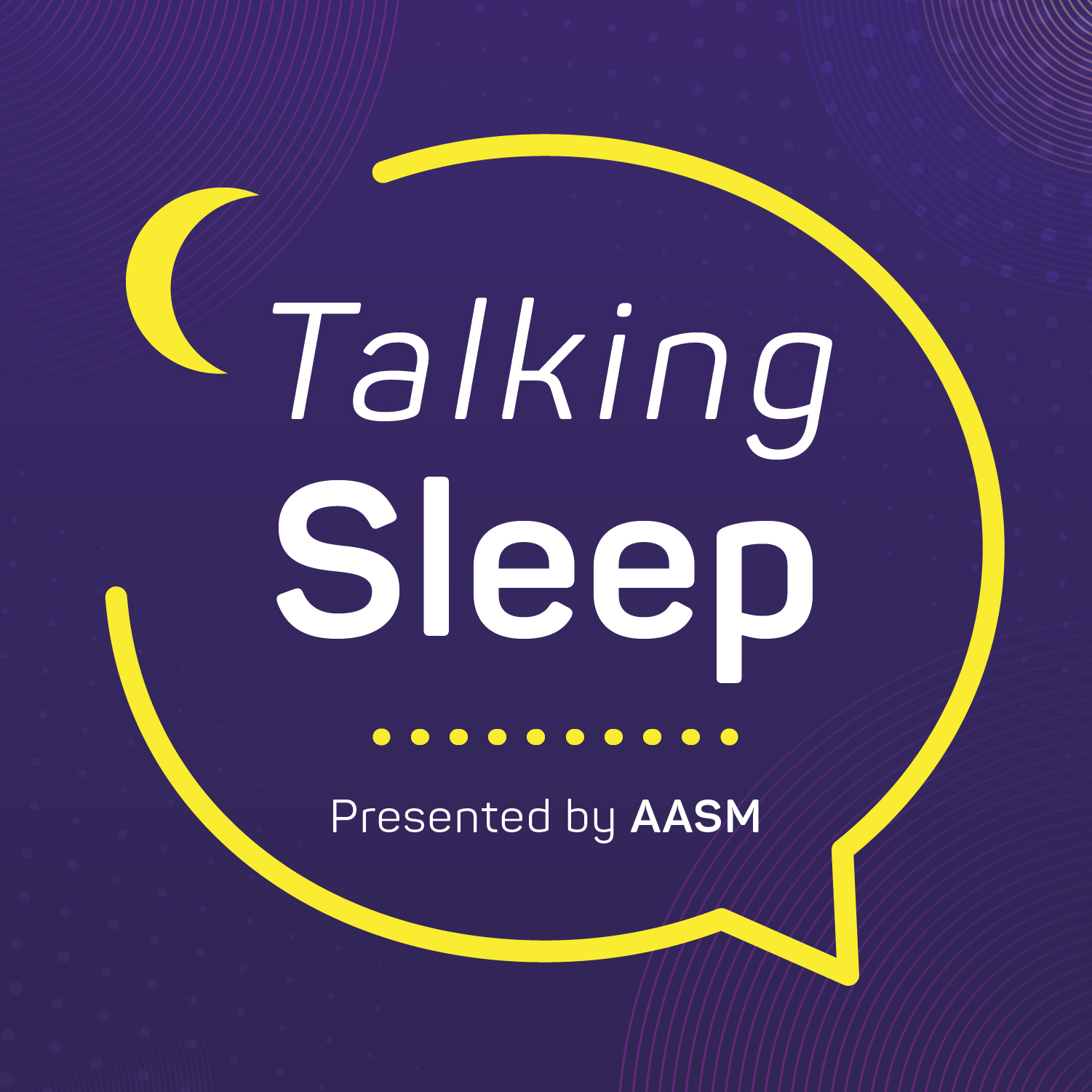

Talking Sleep
AASM
The vast field of sleep medicine is always evolving. Listen to Talking Sleep, a podcast of the American Academy of Sleep Medicine (AASM), to keep up on the latest developments in clinical sleep medicine and sleep disorders. Our host, Dr. Seema Khosla, medical director of the North Dakota Center for Sleep in Fargo, will take an in-depth look at issues impacting the diagnosis and treatment of sleep disorders. Episodes will feature conversations with clinicians, researchers, sleep team members and other health care experts working to help us sleep well so we can live well.
Episodes
Mentioned books

Jul 28, 2023 • 45min
Navigating the Ethics of Disclosure in RBD
In this episode of Talking Sleep our guest, Dr. Alon Avidan, helps us better understand the ethics of disclosure in REM sleep behavior disorder. A big part of this disorder's overall management includes disclosing potential neurodegenerative sequelae. While prescribing medications can be fairly straightforward, the discussion of a potentially life-altering diagnosis is more nuanced. It requires not only the explanation of Lewy Body dementia or Parkinson’s but also the ability to assess what a patient needs to hear and when it is appropriate to disclose this information.

Jul 14, 2023 • 48min
SleepHouse Rock: How a CPT Code is Made
As sleep technology continues to advance, we are sometimes left to try to figure out which billing code to use. There are level 2 studies that have a g-code and some novel HSAT devices that are creating new metrics that don’t always fit into a current CPT code. Navigating this can be tricky. Here to help us understand how a CPT code is made is Dr. Vikas Jain.

Jun 30, 2023 • 35min
Bringing Sleep to the Neighborhood- The Mobile Sleep Lab Model
A few years ago, the AASM held a competition challenging us to reimagine sleep care. The Mobile Sleep Lab was a model that was submitted as a contender in this challenge. Here to tell us more about this are Dr. Mark Boulos, Dr. Luqi Chi and Dr. Oleg Chernyshev.

Jun 16, 2023 • 29min
More Than Chin Music: How a New Signal Can Assess Sleep-Disordered Breathing
In today’s episode of Talking Sleep, we are joined by Dr. Jean-Louis Pépin and Dr. Atul Malhotra, who talk about how the signal derived from mandibular jaw movements during sleep can be an alternative measurement of respiratory effort in patients being evaluated for suspected sleep apnea. We will focus on the scientific basis and clinical implications of this new signal.

May 19, 2023 • 37min
Predicting HGNS Treatment Success
In today’s episode of Talking Sleep, Dr. Raj Dedhia joins us to talk about hypoglossal nerve stimulation, which was first approved by the FDA in 2014 to treat a subset of patients with moderate to severe obstructive sleep apnea. Now, nearly a decade later, the treatment has evolved, and we have a better understanding of its nuances. Visualizing the airway during sleep endoscopy is a key element in patient selection; however, Dr. Dedhia explains that there are other ways to predict treatment success.

May 5, 2023 • 33min
The Nose and OSA: Why the Nose Always Seems to Know
Jolie Chang, an otolaryngologist and UCSF sleep surgery chief, explains how the nose does much more than pass air. She discusses nasal functions, the nasal cycle and positional congestion. Practical tips cover nasal care, spray technique, CPAP interactions, and realistic goals for nasal surgery. The conversation covers valve collapse, empty nose syndrome, and strategies to improve CPAP tolerance.

Apr 21, 2023 • 31min
The Microbiome and Sleep Apnea– A Bidirectional Relationship
Recent evidence and data has highlighted important associations between obstructive sleep apnea and the microbiome. Here to help us learn more about how sleep and the gut microbiome impact our heath is Dr. Andrew Goldberg.

Mar 24, 2023 • 43min
Clinical Considerations for Novel Sleep Technology
The sleep field is intertwined with technological advances. Innovative devices are being developed every day, some of which are crossing over into the clinical realm. In this episode of Talking Sleep, Dr. Scott Ryals and Dr. Steven Holfinger describe how some novel home sleep apnea test devices work and explain how clinicians should approach them.

Mar 10, 2023 • 20min
Permanent Standard Time Advocacy
It's that time of year again when we spring forward and set our clocks ahead one hour. Whether we should continue to change our clocks twice per year is an ongoing topic of debate, and legislation has been introduced in the U.S. Senate and House of Representatives to make daylight saving time permanent. Here to give more insight on the science of clock change and discuss the debate over daylight saving time and standard time is Dr. Karin Johnson.

Feb 24, 2023 • 34min
Comorbid Insomnia and Sleep Apnea (COMISA)
An article was published in the ERJ demonstrating that CBT for Insomnia reduced the severity of obstructive sleep apnea. Our guest, Dr. Alexander Sweetman, is here to tell us more.


